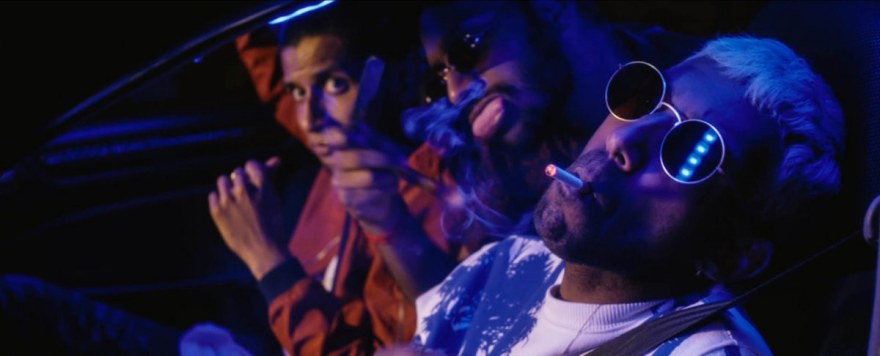Dinner with Little Jaffna
An interview with Lawrence Valin, director of Little Jaffna
Is there an autobiographical element to the film? To the character Seelan? Why did you decide to talk about Little Jaffna?
A little. My parents are political refugees. They fled the war and I grew up with some background on the conflict, which received very little media coverage. I grew up without a father figure and that’s evident in my main character. He’s self-made and is searching for a parental figure to compensate for an emptiness within himself. I wanted to focus on the Tamil community which has very little visibility – actually almost none – in French films.
The main characters are clearly moved by what is happening in Sri Lanka. Is the second generation of Parisian Tamils often interested in the political situation there?
Yes, very much so. Many of us still have a great deal of family in Sri Lanka, since it was only a few, lucky, chosen people who managed to come to France. We’re tightly connected to what goes on back there. As for me, I’m the first person in my family who was born in France so I was the intermediary between my family and the French language. When I was eleven, I was writing requests for political asylum to OFPRA (the French Department for Refugees and Stateless People) – accounts that have remained etched in my mind.
What led you into directing?
A form of discrimination that I experience daily in my profession as an actor. The roles I’m given are stereotypes based on my origins: rose seller, chestnut vendor, speaking with an Indian accent, and so on. Instead of waiting for a director to take the lead, I got a move on, directing myself, hoping to change people’s perceptions about the Indian and Sri Lankan community.
Can you tell us a little about your experience as an actor and director in the same film? Is this something you think you’ll do again?
Acting is my motor, it’s what pushes me to write and direct. It was a great experience, but also very intense… Three months before we began filming, I had started working on my character with help from an artistic coach and an athletic coach. I had worked everything out with the director of photography and the script girl so that all of us would be on the same page, seeing the same film. During filming, an actor friend of mine was the artistic consultant. He was there to help me rethink my acting. I really enjoyed being at the heart of the project, because I could direct the other actors through acting. Most of them were not professional actors, so they were comforted to have me amongst them. I must admit that it wasn’t easy acting in my own film. It takes stamina, but I can’t imagine one without the other. Acting in my own films is what gives me strenght, and I hope to continue.
Can you tell us a little about your future directing projects?
I’m working on my next short film, The Loyal Man, a romance centered on the Tamil mafia of Paris between a henchman and an illegal immigrant. At the same time, I’m also working on my first feature film, EELAM, which will be an in-depth look at the Tamil gangs in Paris.
Have you discovered any advantages that the short film form provides?
Not really. In fact, I found the short format particularly difficult. My topic was too dense for a short film. As I was writing, it was a nightmare trying to get everything to fit.
If you’ve already been to Clermont-Ferrand, could you share with us an anecdote or story from the festival? If not, what are your expectations for this year?
This will be my first time, so I don’t really know. I hope everything goes well.
Is your film being shown elsewhere?
The film was bought by CANAL+. It will be shown in March, but I don’t have the precise date yet.
Little Jaffna is part of National Competition F9.









